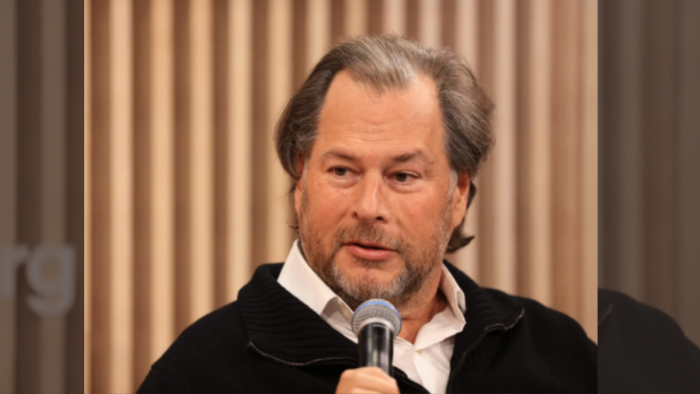Artificial Intelligence
2 min read
AI Revolution at Salesforce: Benioff’s Vision and the Numbers Behind the Shift


Salesforce is experiencing a profound transformation as artificial intelligence becomes integral to its operations. CEO Marc Benioff has revealed that AI now manages between 30% and 50% of Salesforce’s internal workload, automating everything from customer service and coding to sales processes. “The agent revolution is real and as exciting as the cloud revolution… the social revolution, the mobile revolution,” Benioff stated, highlighting the unprecedented scale of this technological shift._1751028082.png)
This momentum is not unique to Salesforce. Benioff drew direct comparisons to industry peers, noting that Microsoft CEO Satya Nadella recently disclosed that roughly 30% of new programming code at Microsoft is AI-generated. Similarly, Google CEO Sundar Pichai estimated that about 25% of Google’s code is now produced by AI. These figures underscore a sweeping trend across the tech sector, where automation is rapidly redefining core business functions.
While acknowledging the industry-wide embrace of AI, Benioff has also voiced skepticism about some competitors’ approaches. He cautioned that massive investments in AI infrastructure by companies like Microsoft and Google may not always yield proportional returns, emphasizing that Salesforce’s strategy is rooted in practical, data-driven integration. Benioff has openly critiqued Microsoft’s Copilot, describing it as lacking in enterprise security and data depth, and dubbing it “Clippy 2.0” to highlight its limitations compared to Salesforce’s offerings.
The impact of AI at Salesforce is evident in the numbers. Over 60% of Salesforce users have adopted AI-powered features, resulting in a 32% increase in productivity for those utilizing tools like Einstein GPT. Among small and medium businesses, 91% report that AI has directly increased their revenue, while nearly 80% see it as transformative for their future. Since its late 2024 launch, Salesforce’s Agentforce platform has attracted more than 3,000 paying customers, including Pfizer and Singapore Airlines.
Despite these advances, Benioff maintains that AI is meant to augment—not replace—human talent. Employees are shifting from repetitive work to roles demanding greater creativity and judgment. However, he acknowledges ongoing challenges, such as ensuring AI accuracy in complex tasks and addressing workforce skills gaps.
As Salesforce continues to embed AI deeper into its business, Benioff’s vision is not only shaping the company’s trajectory but also influencing how the broader industry approaches automation and human-AI collaboration. The interconnected advances at Salesforce, Microsoft, and Google signal that the age of AI-driven enterprise is well underway.
Be the first to post comment!